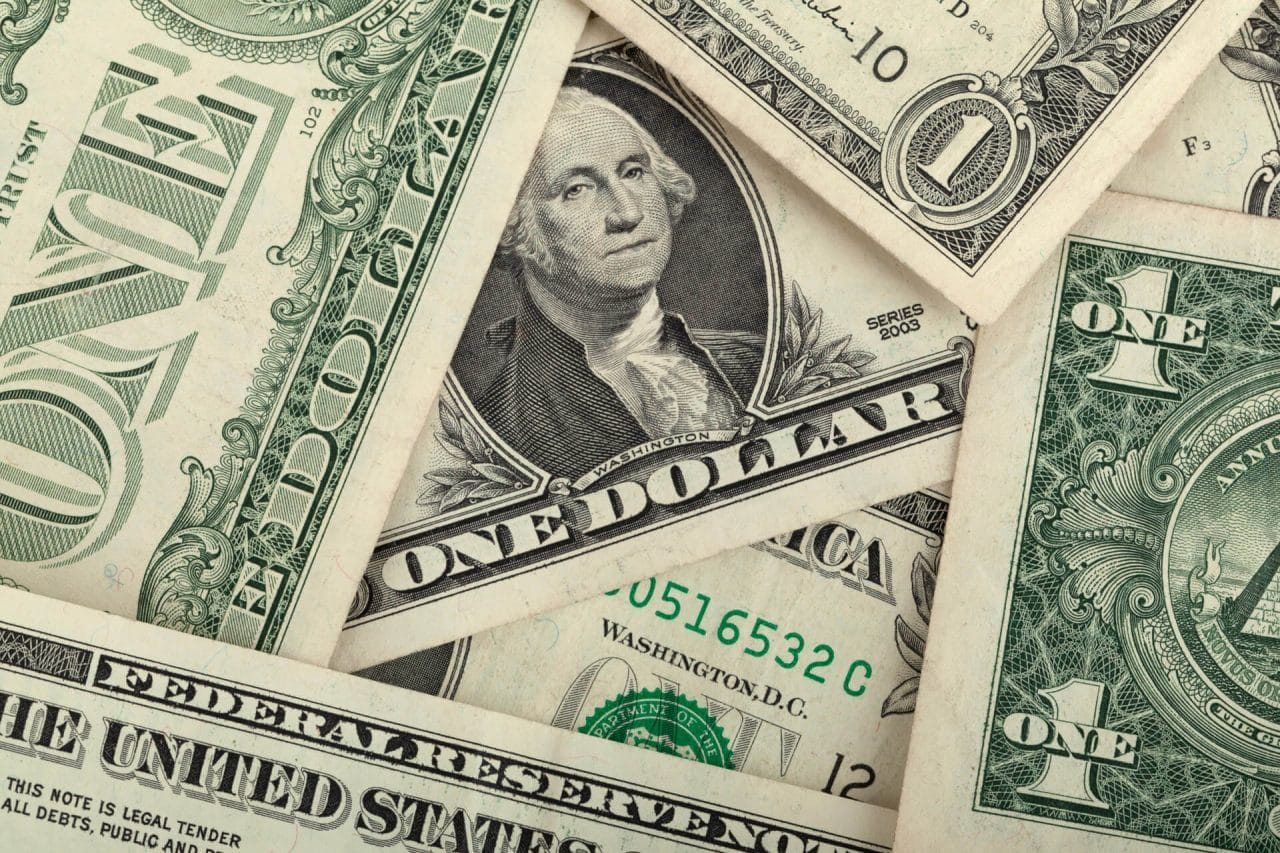Our boys love money. Who doesn’t? So naturally building good money habits became a teaching focus for our two boys. We knew we didn’t want them growing up not understanding the basics of good and bad money spending. But how could we teach good money habits for kids when they didn’t have money?

Obtaining Money
Paid Chores
Some people don’t like the concept of paid chores but we’ve come up with a system that works for our family. There are certain tasks that just have to be done. We must have clean dishes so we all chip in to wash dishes. The boys empty the dishwasher. Tim or I load the dishwasher. Grandma does the little odds and ends that don’t fit or can’t go in the dishwasher. We need clean clothes so everyone helps out for that, too. But then there are little tasks that need to be done like sweeping the dog fur or picking up the tumbleweeds in the yard. For these tasks, the boys have the option of doing them for a small fee. These tasks don’t earn much at a time because they are quickie jobs but can easily push you from just under the money goal to over it.
Working For It
As the boys get older and want bigger amounts of money, we’ll naturally segue into working for other people. Babysitting was my go-to job as a kid but there are lots of things that kids can do.
Free Money
We’ve all received free money at some point in our lives. Birthday gifts, change on the ground, or raiding change from a parent’s pockets. We have one rule for the boys when collecting change from around the house. The boys can have all of the pennies, nickels, and dimes but must leave the quarters. Quarters are kept in the car’s change bin for emergencies while we’re out and about.
Saving Money
Saving Change
Our boys have a special place to keep their change and it’s always something that can be changed up when needed. Drama King has a sorting money mill. Little T a change jar. Not only does this help them visually watch their money grow, it’s an amazing way to teach a lot of math skills without being all that mathy. Is that even a word?
Kids can learn to count by ones (pennies), fives (nickels), and by tens (dimes). You can teach fractions; a quarter is 25 cents because quarter means 1/4 and 1/4 of 100 pennies is 25 pennies. Adding, subtracting, multiplying, and dividing can all be taught using money. Plus don’t forget all the math required to keep track of how much things cost and if you have enough to buy now or figuring out when you will have enough to buy the item you’ve been wanting.
Saving Larger Amounts
Our boys have a pretend bank account that they use regularly. I keep track of their pretend bank account using Google Sheets. It’s a spreadsheet program like Microsoft Excel or Libre Calc. Using an online program allows me to maintain admin access to change things while allowing the boys viewable access so they can see their balance grow when they save and diminish when they spend.
As your child grows and becomes responsible with their pretend account, you can easily segue into harder situations like pretend checks and debit cards, auto deposits, and more. After a while, your child will be a master at keeping the pretend account and you can convert the pretend one into a real bank account.
Spending Money
Budgeting
This is the fun part as a parent because you get to hand down all those hard lessons you learned and watch your child make the same mistakes because inevitably they will make the same mistakes we all made with our first bank accounts. The account will be overdrawn due to a forgotten check. A deposit doesn’t make it in time to cover their next bill. All of the day to day struggles adults have can be slimmed down to a child level so they can learn to budget money for the future while still enjoying the current. Do you have a vacation coming up next month? Save money for the trip or buy a candy today? Is a $1 toy in the hand today better than a $5 toy next month? Impulse buy a new video game at $50 or wait until it’s on sale for $35? These are all scenarios our boys have faced in recent years and they have learned a lesson from each transaction.
Sales & Clearance
Our boys are pretty good at spotting a good deal but this has come after many hard lessons. Drama King, while normally soft spoken, gets strangely normal pitched when he thinks a store is deceiving him of his hard earned cash. One time he protested by loudly stating, “The store is trying to trick me with the clearance sticker. It’s only $1 off.” I’m pretty sure he was holding a $20 toy so he was perfectly on point. Our family guideline is 50% off or more for clearance items and everything else is just a sale price.
Did we miss some important good money habits for kids?

3 replies on “Building Good Money Habits For Kids”
[…] sorting – Building good money habits means a lot of coin counting and these are perfect for the job. Just make sure you do a thorough […]
[…] sorting – Building good money habits means a lot of coin counting and these are perfect for the job. Just make sure you do a thorough […]
[…] sorting – Building good money habits means a lot of coin counting and these are perfect for the job. Just make sure you do a thorough […]